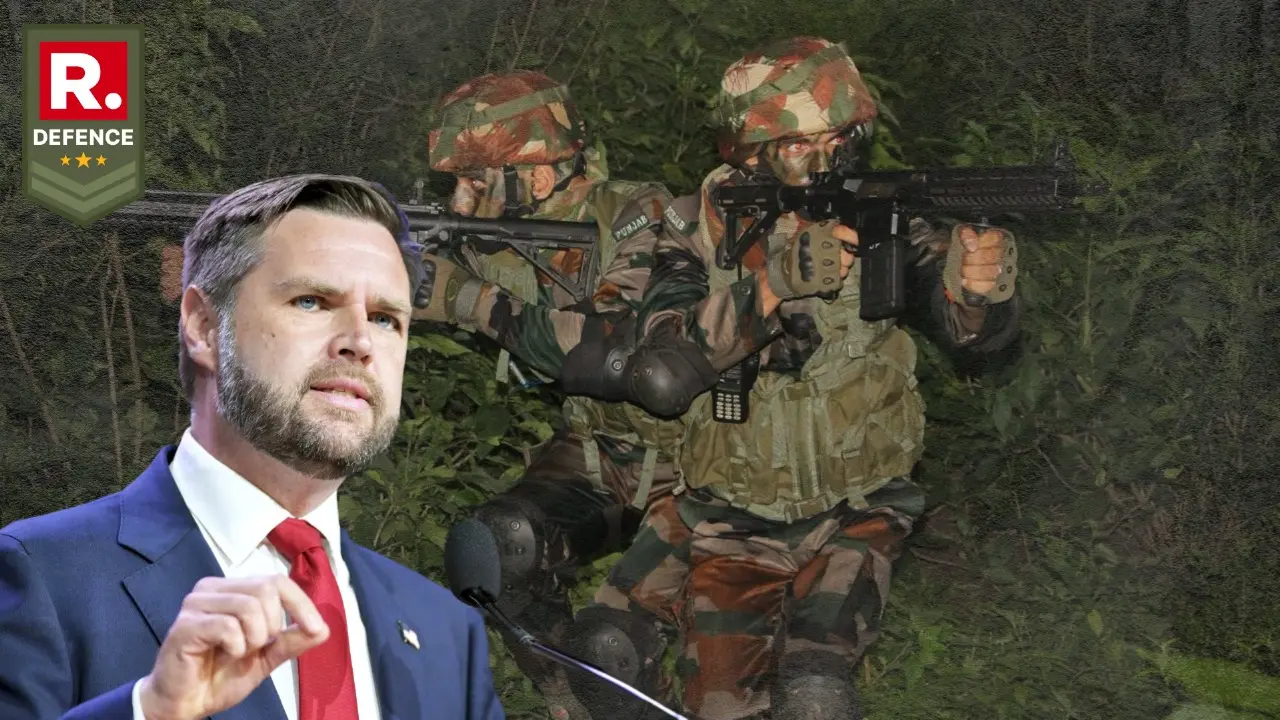Updated 23 April 2025 at 16:45 IST
After Gen Munir’s Anti-Hindu Speech, Pahalgam Attack a Planned Act of Proxy Retaliation amid JD Vance’s India visit
Just days prior, Pakistan’s Army Chief Gen Asim Munir made anti-India remarks at the Margalla Dialogue, accusing India of targeting minorities.
- Defence News
- 2 min read

Pahalgam, Kashmir - In a chilling act of terror, at least 26 civilians, including tourists and locals, were brutally killed in Pahalgam, Jammu and Kashmir, on April 22, 2025. The attack, claimed by The Resistance Front (TRF), an offshoot of Pakistan-based Lashkar-e-Taiba, has raised alarms not just for its brutality but also for its timing and underlying motives.
The massacre coincided with the visit of U.S. Vice President JD Vance to India, a period marked by heightened diplomatic engagements and international attention. Analysts suggest that the attack's timing was not coincidental but a strategic move to undermine India's image on the global stage and challenge its internal security apparatus during a significant diplomatic event.
Echoes of Extremism
Just days before the attack, Pakistan's Chief of Army Staff, General Asim Munir, delivered a speech at the Margalla Dialogue 2024, vehemently criticizing India's "Hindutva ideology" and alleging threats to minorities both within India and abroad. He described India's actions in Jammu and Kashmir as manifestations of this ideology, labelling them as acts of "cruelty and brutality".
Observers note that such rhetoric from Pakistan's military leadership may embolden extremist elements, providing ideological justification for acts of terror. The alignment of Munir's statements with the subsequent attack in Pahalgam suggests a possible correlation between inflammatory discourse and on-ground violence.
Advertisement
Targeted Terror
The assailants, armed with military-grade weapons including M4 carbines and AK-47s, targeted a group of tourists in the Baisaran meadow near Pahalgam. Survivors recounted that the attackers specifically sought out non-Muslim victims, sparing others to "narrate the horrors" to Indian authorities.

Forensic analyses and intelligence reports have traced the origins of the weapons and communication devices used in the attack to sources within Pakistan, indicating logistical support from trained handlers. Digital footprints link the perpetrators to safe houses in Muzaffarabad and Karachi, further substantiating claims of cross-border involvement.
Advertisement
Global Repercussions
The international community has condemned the attack, with U.S. Vice President JD Vance expressing solidarity with India during his visit. Prime Minister Narendra Modi, cutting short his trip to Saudi Arabia, vowed to bring the perpetrators to justice, emphasizing India's resolve to combat terrorism.

The incident has reignited discussions on the persistent threat of cross-border terrorism and the role of state actors in perpetuating violence. It underscores the need for a coordinated international response to address the roots of extremism and ensure regional stability.
Watch - Pahalgam Terror Attack BREAKING: NSA Ajit Doval Meets PM Modi
Published By : Yuvraj Tyagi
Published On: 23 April 2025 at 16:45 IST
